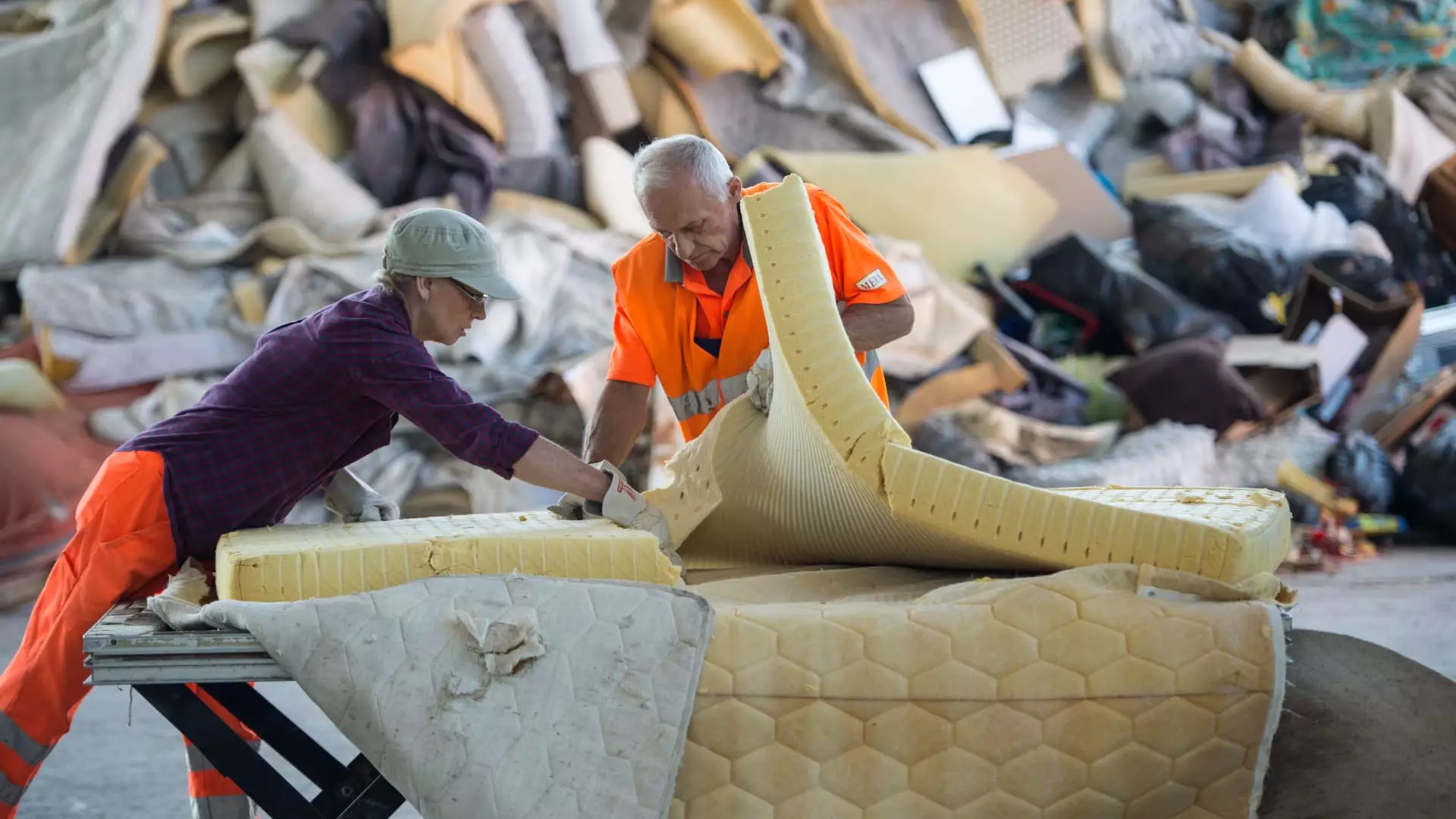In recent years, the push toward more sustainable practices has prompted various industries to adapt their methods of operation. Among these, the mattress industry stands out for its ambitious recycling initiatives. Four U.S. states—California, Connecticut, Oregon, and Rhode Island—have embraced this movement by introducing retail fees aimed at financing state recycling programs. These fees, which range between $16 and $23 per mattress or box spring, are part of a larger effort to alleviate the environmental burden of discarded mattresses while promoting a more circular economy.
The Scope of the Problem
Every year, Americans dispose of an estimated 15 million to 20 million mattresses—a staggering average of nearly 50,000 each day, according to data from the Mattress Recycling Council (MRC). The majority of these items end up in landfills, contributing to the escalating waste crisis. However, a glimmer of hope arises as studies suggest that over 75% of mattress materials—such as wood, steel, foams, and fabrics—are recyclable. This high recyclability underscores the importance of implementing design strategies and policies that encourage responsible disposal and resource recovery.
Oregon spearheaded mattress recycling fees in January of this year, instituting a “stewardship assessment” of $22.50 for each new unit purchased. This fee reflects the state’s commitment to facilitate consumer recycling and curtail illegal dumping. California and Connecticut will follow suit, having raised their fees to $16 per unit as of 2025. Rhode Island has also increased its recycling fee to $20.50. Such measures are part of a broader trend of “extended producer responsibility” (EPR), which shifts the burden of end-of-life disposal from consumers to the manufacturers.
With the introduction of these fees, consumers are encouraged to view their purchases as investments in sustainable practices. The funds generated from these levies are allocated to operational costs associated with recycling initiatives, public education campaigns, and the establishment of collection sites across the affected states. Oregon, for example, aims to provide convenient drop-off locations in every county, significantly facilitating the recycling process.
The burgeoning movement of mattress recycling is not confined to the four states currently leading the charge; negotiations are underway in Massachusetts, Maryland, New York, and Virginia to create similar programs. The Mattress Recycling Council plays a vital role in advocating for these legislative changes, working in conjunction with state lawmakers to develop frameworks that minimize waste and promote sustainable practices in the mattress industry.
The individual state programs provide concrete examples of how EPR can work effectively. As Reid Lifset from Yale University states, such laws promote a shared responsibility model, making the producers better equipped to manage the lifecycle of their products. Encouragingly, these programs also generate new jobs within the recycling sector, promoting economic growth alongside environmental sustainability.
Challenges Ahead: A Lack of Recycling Facilities
Despite the numerous benefits of the mattress recycling initiatives, consumers in states without these laws still face significant challenges. A mere 58 companies nationwide currently offer recycling services for mattresses, leaving many communities without convenient drop-off or pickup options. In states lacking established recycling programs, consumers often encounter expensive fees when attempting to recycle their old mattresses; as an example, one resident in New York City paid $95 for such a service.
The situation highlights a critical shortfall in accessible recycling facilities, underscoring the necessity for further growth and investment in this area. Improving logistics and infrastructure will be essential in expanding the reach of these recycling programs, ensuring that every community can participate in sustainable waste management practices.
As the paradigm shifts toward a more sustainable economy, mattress recycling programs represent a significant stride in redefining consumer habits and industry responsibilities. The initiatives launched by states like Oregon, California, Connecticut, and Rhode Island set a precedent for others to follow, demonstrating the essential role of innovative policies in achieving environmental objectives. Moving forward, it is crucial for policymakers, industry stakeholders, and consumers to collaborate, expanding these initiatives and ensuring that responsible waste management becomes the norm across the entire country.

